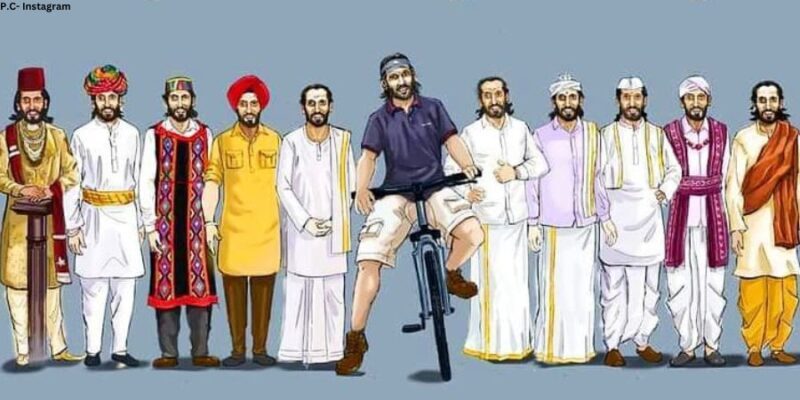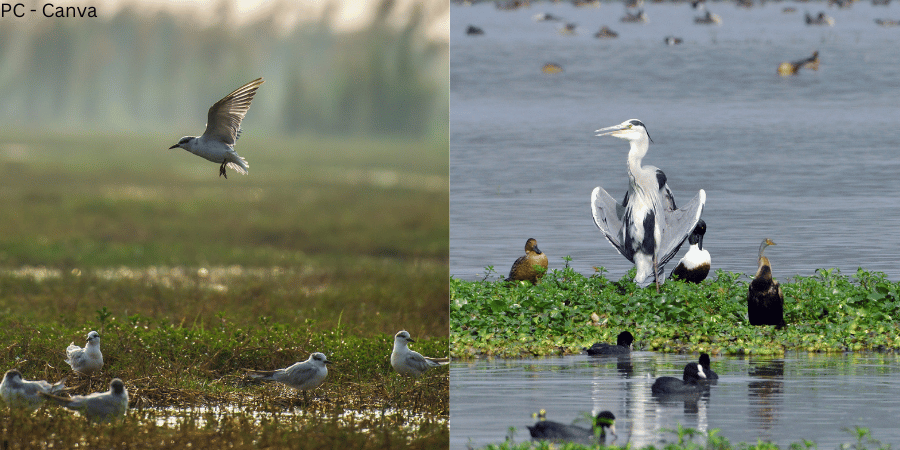Do you recall the trip that ran a bit late? Everyone has had a journey they wish they could have kept going on, but it’s hard to fathom someone extending a 150-day cycling tour to 5 years and still being on the road..
In 2017, Ankit Arora, a dedicated cyclist, challenged the norm of traveling and embarked on a cycling journey that is still going on. Upon such a strange turn of events, the impressive part is that Ankit is not only traveling the country but also promoting the idea of sustainable living, sharing his learnings and helping people rediscover the art of living a simple yet sustainable life at each new location.
Cycling Expedition – Started to Break a Guinness World Record
Armed with his bicycle, a thirst for adventure, and a vision to break a Guinness World Record for the longest journey on a bicycle within a single country, Ankit, the cyclist, set out to explore the captivating beauty of India like never before.

His cycling journey commenced on August 27, 2017 from the sands of Jaisalmer, and little did he know that what was initially intended to be a 150-day cycling expedition would transform into an extraordinary five-year odyssey of change and marvel.
Ankit’s quest was not about ticking off world heritage sites but to immerse himself in diverse cultures and forge connections with people from all walks of life. He embraced an alternative way of living, opting not to carry any money and instead relying on the kindness of local families during his cycling adventure, promoting sustainable living.

Each village welcomed the cyclist with open arms, offering shelter, food, and companionship as he continued his cycling journey through their lands. Ankit’s heartwarming experiences as a cyclist taught him that human connections and shared experiences enrich the soul far beyond any material possession.
As he cycled through the country’s tapestry of landscapes, Ankit explored India’s rich heritage of traditional crafts and sustainable living practices. He delved into the world of organic farming, learning ancient art forms, and honing his skills in woodworking during his cycling expeditions.

From crafting intricate wooden sculptures in Maharashtra and Bengaluru to weaving khadi shirts and creating coconut shell cutlery and jewellery, the cyclist’s journey became an embodiment of the vibrant tapestry of Indian culture, with a focus on sustainable living. He even learned the art of making the Veena, a traditional musical instrument that has been played for centuries.
40 kg To 4 kg, Sustainability is an Art
Ankit’s transformation as a traveler and cyclist was mirrored in the evolution of his belongings. Initially laden with 40-kilogram baggage, he soon realized that the essence of travel and sustainable living lies not in the possessions one carries but in the openness to embrace the unknown.

Shedding the unnecessary weight, both literally and metaphorically, the cyclist Ankit liberated himself and embraced the mantra of “less is more,” aligning with the principles of sustainable living. Currently, he travels as a cyclist with a mere three kilograms of essentials, a testament to his newfound wisdom.
Ankit’s journey as a cyclist gave him experiences that will always stay with him and gave him an unbreakable sense of compassion. His interactions with many different people and his desire to live in a simple way made him want to give back to the villages that had welcomed him.

Drawing from the skills he acquired during his cycling travels, he initiated projects in rural communities, teaching them about natural farming and recycling. Ankit’s vision as a cyclist extended beyond practicality; he sought to preserve traditional arts like Madhubani, Gond, Pichwai, and wall paintings, thus safeguarding India’s cultural heritage for future generations.
While he was on the move, he encouraged many people to learn more about themselves and start living a simple, healthy life. For a better tomorrow, he helped people build mud homes and start organic farming.

In fact, Ankit even made an eco-friendly and organic farm while on this journey, he says that the idea for Innisfree Farm was to make it a “community where people could do all kinds of crafts, arts, organic farming, and build natural mud houses.” Using natural materials like brown and red mud, sugar, honey, and egg yolk, he used an old tribe method to build homes that keep heat in and are easy to change shape. A mud couch was made from bottles filled with plastic bags.
So far, they have made two mud houses, two wooden and straw houses, one mud sofa, two dry toilets and two huge ponds for collecting rainwater.

His wanderlust as a cyclist has evolved into a profound purpose – to discover diverse communities and, in doing so, rediscover himself. By advocating for environmental consciousness and renewable energy throughout his cycling expedition, he has become a catalyst for change, inspiring others to embrace sustainable living and eco-friendly practices.
If you loved reading about environmental initiatives, you’ll also love reading – Inspired By IITian Father’s Plastic Recycling Buisness Son Starts EcoLine: Transforming Plastic Trash Into Fashion
If you know more inspirational stories about any person, company, new idea, or social initiative, write to us at mad4india.com, or share such information with us on Instagram, Facebook, or LinkedIn.



